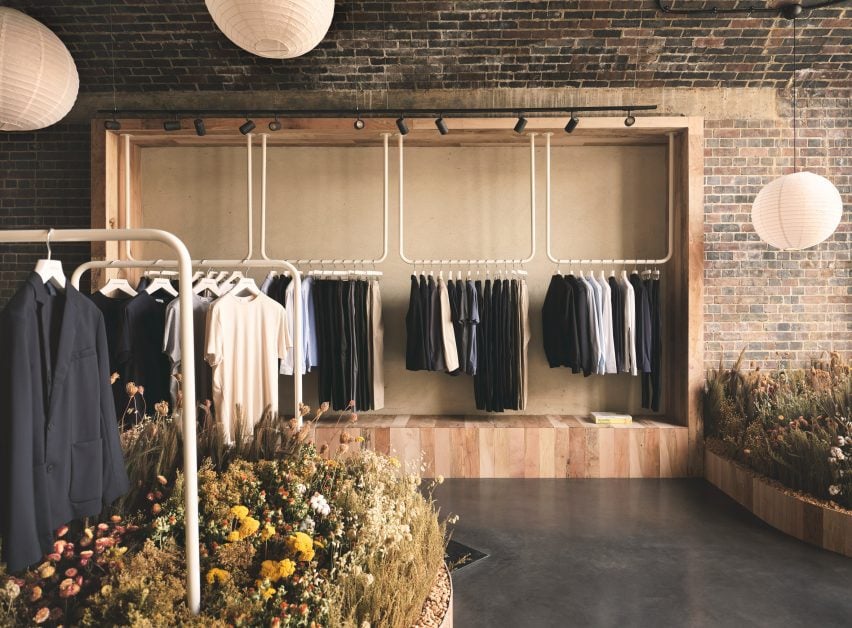Fred Rigby Studio creates dried flower meadow inside Lestrange store
Forest sounds and furnishings made from storm-stricken trees bring elements of nature into this menswear boutique in London’s King’s Cross, designed by local practice Fred Rigby Studio.
The store is the fourth outpost from men’s fashion brand Lestrange and was conceived based on blueprints by biophilic design expert Oliver Heath, combining greenery with reclaimed and natural materials to forge a greater connection to the outdoors.
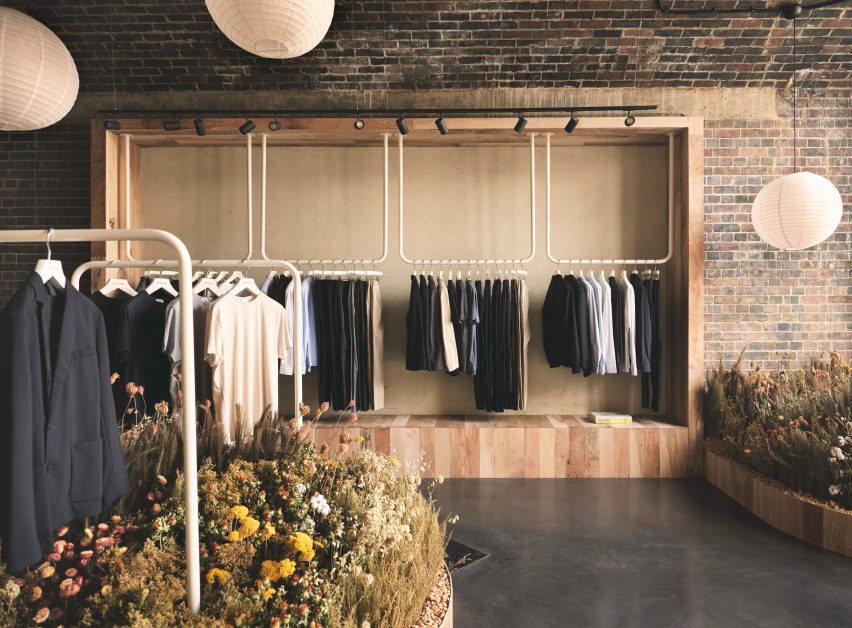
According to Fred Rigby Studio, this approach was chosen to reflect the brand’s philosophy of using renewable and recycled fibres to produce clothing with longevity.
“We wanted to create a sense of calm within the space, which didn’t feel like a generic shop but an interior which told a story behind the clothing and the brand’s ethos,” explained the studio’s eponymous founder.
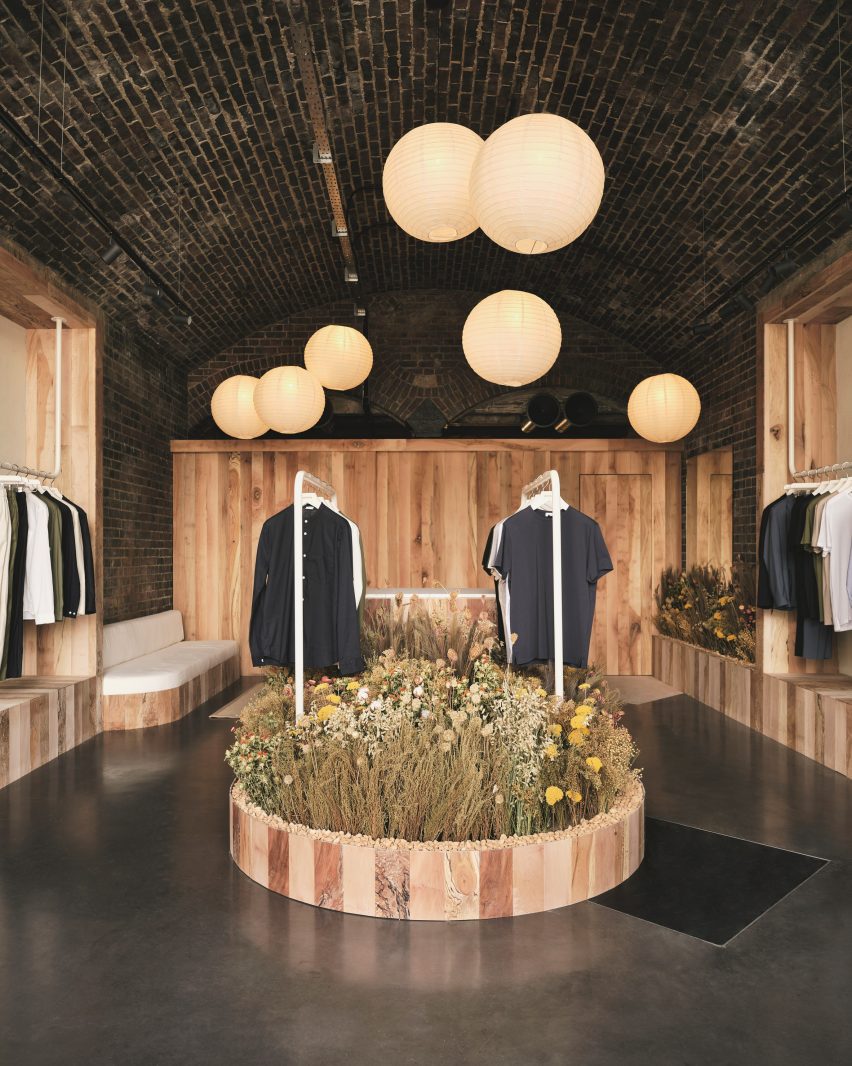
The Lestrange store is set inside the Thomas Heatherwick-designed Coal Drops Yard shopping centre, formed of two converted warehouses that were originally built in the Victorian era to store the vast quantities of coal needed by the capital.
Rigby wanted to incorporate this imposing brick structure into his final design.
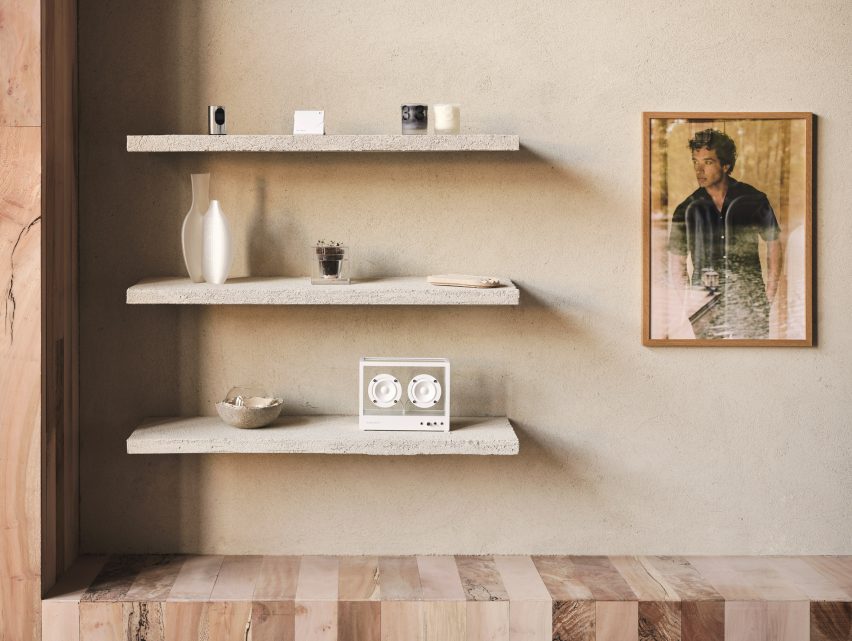
“We didn’t want to hide this history by covering it up, which would have also entailed using construction materials,” he told Dezeen.
“So we celebrated it, breaking the space up using timber walls and cladding, then adding the rice paper lights to give the space a more intimate feel.”
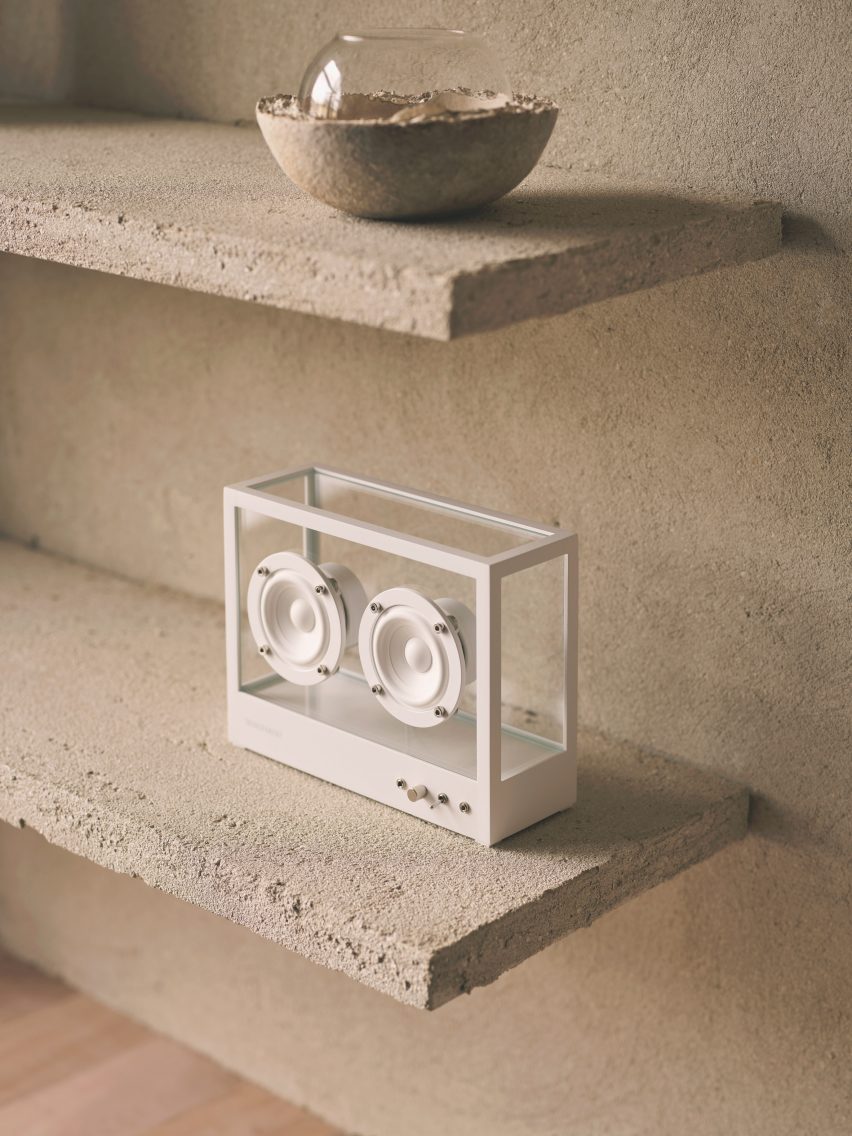
Using the existing site as his canvas, Rigby focused on sourcing a tight edit of natural and reclaimed materials.
“There are lots of new materials on the market, but finding those that are produced in quantity and applicable to commercial use can be a challenge,” he said.
London plane timber – harvested from “storm-stricken and diseased trees” within a few miles of King’s Cross – was used to form the partitions that define the store’s display and changing areas, as well as some bespoke furniture pieces.
British manufacturer Clayworks blended unfired clays with minerals and natural pigments to create the tactile wall finishes, while the terrazzo-style countertops were made by Welsh company Smile Plastics using a mix of recycled plastics from discarded mobile phone casings and chopping boards.
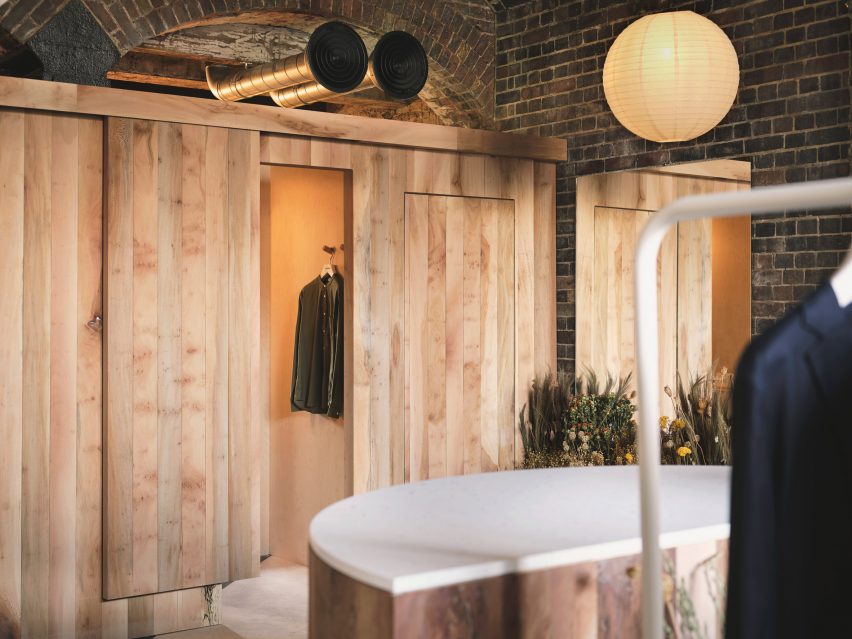
As the ultimate counterpoint to the mass and severity of the brick, Rigby conceived the idea of an indoor meadow that meanders through the Lestrange store.
The arrangement of natural dried flowers and grasses was realised by award-winning garden designer Lottie Delamain, integrating a carefully chosen mix of species to reflect the fibres commonly used in apparel manufacture such as cotton and flax.
“We wanted to bring nature inside, using plants linked to the clothes while creating a touch point to the materiality,” said Rigby.
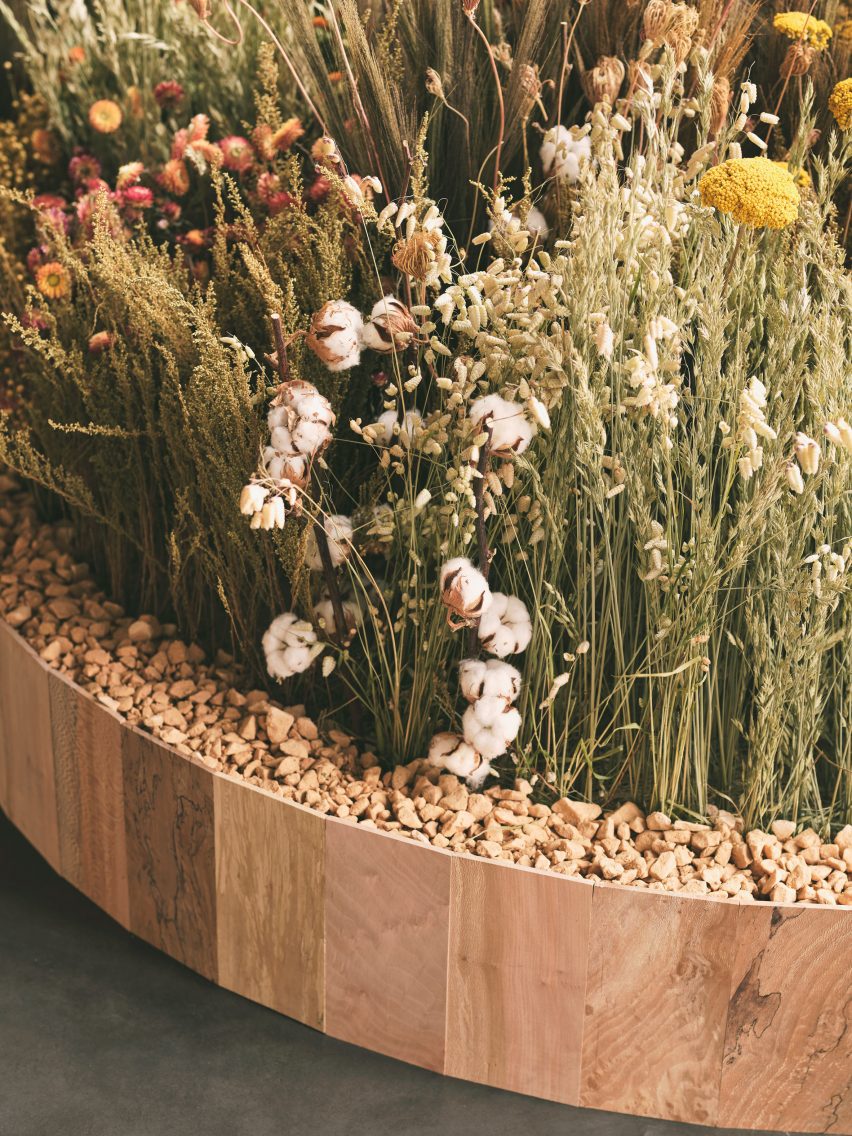
Clothes are displayed on simple white metal rails and the capacious open-topped dressing rooms feature speakers playing forest sounds, complemented by discreet wall lights that cast a subtle glow.
There are also subtle nods to Japanese design in the form of the rice paper lampshades that float at varying heights throughout the store.
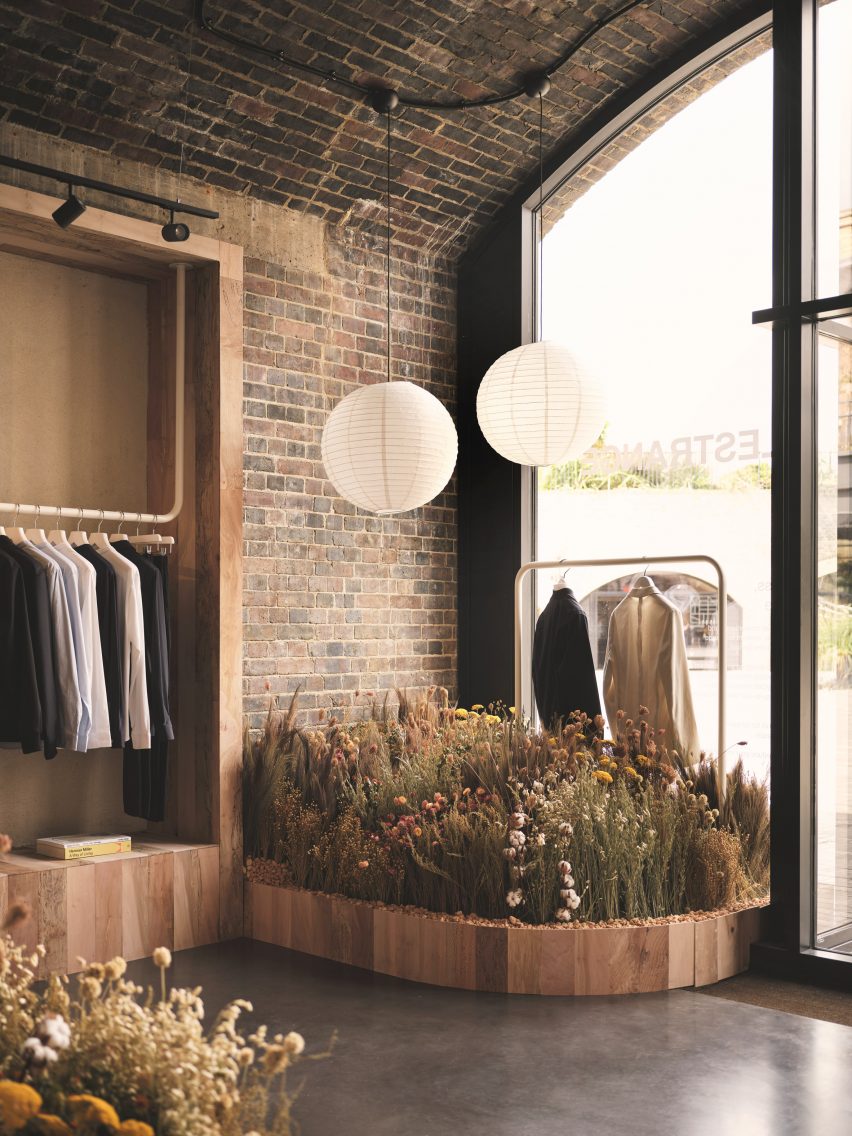
“We started with a mixture of initial references, one of which was a teahouse designed by Charlotte Perriand,” said Rigby.
“We wanted to create a material-focused space with nods to natural materials such as the rice paper lights, which we felt would add to the space and create a sense of calm and stillness.”
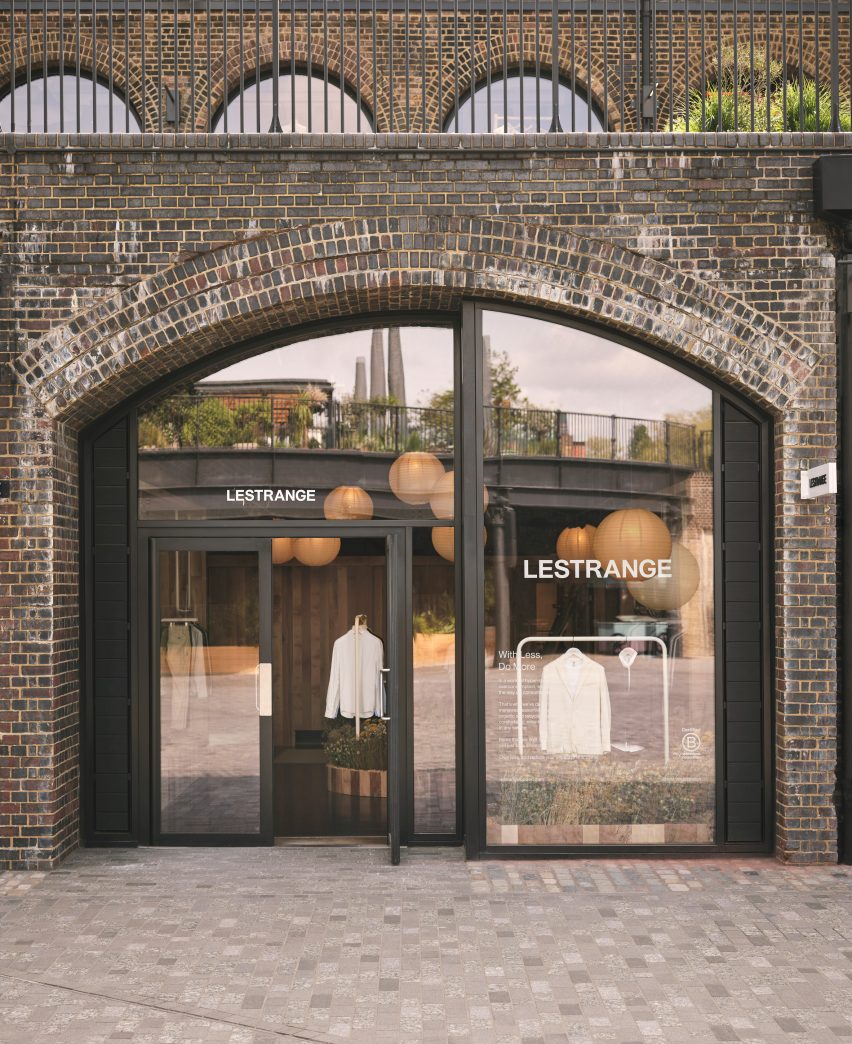
Previous projects from Rigby, who founded his studio in 2008, include bespoke furnishings for a renovated 1920s office building in London as well as the interiors of Bath’s Francis Gallery, which is set inside a Georgian townhouse.
The photography is by Felix Speller.

